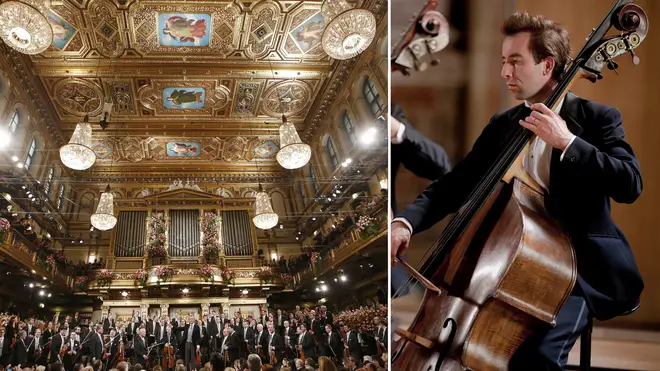76 percent of UK musicians will ‘stop performing in Europe’ due to Brexit
26 January 2021, 17:02 | Updated: 27 January 2021, 15:53

Survey also found that classical musicians ‘stand to lose the most income’ from the new travel restrictions.
76 percent of musicians say they will be forced to stop performing in Europe because of Brexit.
Surveyed by musician booking platform Encore Musicians, over three quarters of 452 musicians who responded said that it was “likely Brexit travel restrictions will stop them performing in Europe.” The finding follows the news that visa-free travel will not be a feature of the UK’s post-Union relationship with the EU.
Read more: British musicians ‘shamefully failed by government’ over lack of visa-free EU travel >
Out of all musicians, the survey found that classical artists “stand to lose the most income” from the travel restrictions, as they make the most on average from European performances, when compared to other genres.
Based on 2019 earnings, individual classical artists are set to lose an average of £5,713 per annum, while the average across all musical genres is £4,673.
A further finding of the study is that, of those musicians who responded, 40 percent have already had to cancel performances slated to take place in Europe.

Some respondents shared qualitative data around their personal experiences, with a cellist stating: “My income will drop dramatically. I will have to try busking in the UK and try to build my Patreon up a bit more to attempt to make ends meet.
“It’s bad for me, but truly a tragedy for young musicians.”
An opera singer, Gráinne Gillis, shared, “I’m Irish and leaving the UK because of Brexit to live in Germany, as soon as the [coronavirus] travel restrictions ease.”
To date, the UK government has said the EU “repeatedly rejected” a proposal it set forth to allow musicians to tour, adding that the EU’s own offer would not have worked for touring musicians.
The EU countered this, claiming that they offered a 90-day visa-free offer for musicians and other selected professionals, and that the UK’s proposal actually would not have solved the issue.
Read more: Musicians’ fury at report UK ‘rejected visa-free tours’ for artists, despite blaming EU >
What impact will Brexit travel restrictions have on UK musicians? 🇬🇧🇪🇺
— James McAulay 🏴 Encore (@thejamesmcaulay) January 27, 2021
We've just released Encore's survey results, which I've summarised in this thread 👇👇👇
The findings are bleak, but there's still time for the UK Government to do the right thing for its artists
🧵(1/10) pic.twitter.com/scNJ3ewvfs
Now that the UK has left the European Union, musicians can perform in the EU for 90 days within a 180-day period, but they still may require permits to perform in individual member states.
90 percent of people asked in this survey described themselves as not being “confident that the government will negotiate a post-Brexit travel deal that works well for musicians” and 89 percent indicated that they “disagree” with Oliver Dowden’s statement that “it was the EU letting down music on both sides of the Channel – not us”.
This explains what the UK sought in the negotiations - which was what UK music representatives told us would work best for them https://t.co/HYplzZKMal pic.twitter.com/JXyaIFNl2B
— Oliver Dowden (@OliverDowden) January 13, 2021
James McAulay, CEO of Encore Musicians, says:
“Musicians across the UK are already struggling to survive and adapt to the pandemic, and now the government’s handling of Brexit could deliver another blow to their earnings.
“The government’s poor record so far negotiating paper-free travel for musicians in Europe adds yet another stress to our already stretched music industry.”
The UK music industry contributes £5.2 billion annually to the UK economy and employs nearly 200,000 people.


































